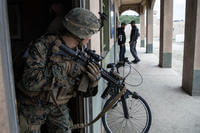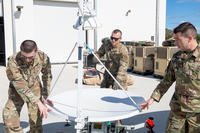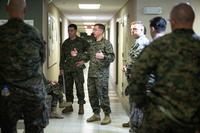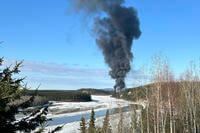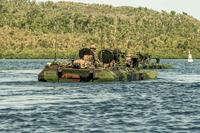Former Defense Secretary Robert Gates tried to get inside the head of Russian President Vladimir Putin Wednesday to guide Congress in dealing with Moscow's designs on Syria and Ukraine.
The main thing about Putin to keep in mind is that he is "very much an opportunist" who will push where he perceives indecision and weakness, and back off where he senses resistance, Gates told the Senate Armed Services Committee.
Gates faulted the Obama administration for failing thus far to communicate to Moscow clearly defined limits to its involvement in Syria while apparently adopting a strategy of waiting for Russia to become bogged down in the "quagmire" of the Mideast.
Putin will aggressively seize upon opportunities but "at the same time he's not a madman," Gates said. "If he also has the opportunity to poke the U.S. in the eye, he will never miss that opportunity."
The problem then becomes "where do you resist him, where do you push," Gates said in response to questions from Sen Kelly Ayotte, R-New Hampshire, on Putin's intents.
"If he (Putin) encounters resistance, he will hesitate, he will pull back," Gates predicted. "One of those places where I think there is an opportunity to draw some lines is in Syria," he said," possibly by setting up a "safe haven" for refugees along the Turkish-Syrian border.
"The only way you can staunch the humanitarian flow, the humanitarian disaster, is through some kind of a safe haven and I think that that's achievable," Gates said.
"I think we should decide what we want to do in Syria," he said, and then "just tell the Russians – this is what we're going to do, stay out of the way." By doing so, "the chances of them challenging us are significantly reduced," he said.
Another line of resistance would be in supporting credible indigenous forces and tribes in both Syria and Iraq, Gates said.
Last week, Gates said it was "nuts" for the U.S. to have embarked on the now-disbanded effort to vet, train and equip a projected force of 5,000 Syrian fighters outside the country and then send them back in on their own.
"I was probably more blunt than I should have been," he said in his Senate testimony, but "the idea of training indigenous fighters outside of a country and then infiltrating them was probably never going to work."
A better course, Gates said, would be to "look for tribes and ethnic groups that want to defend themselves and then provide weapons."
They may not want to fight "outside of their own turf against ISIS" but "they may well fight to the death to protect their own homeland. I would include above all among those groups the Kurds," he said.
Gates said his own dealings with and observations of Putin went back to when he was an analyst in the CIA and Putin was a lieutenant colonel in the KGB, then the Russian counterpart of the CIA.
As defense secretary, Gates said his interactions with Putin often centered on their shared background in intelligence, and he came to view Putin as being mainly influenced by "the collapse not just of the Soviet Union but the Russian empire."
"Putin is all about lost power, lost glory, lost empire but he is not crazy," he said. His goals were "to restore Russia to great power status" and "to create buffer states friendly to Russia on the periphery of Russia. That's what happened in eastern Ukraine."
Gates said he supported the current U.S. efforts to put U.S. troops in Europe on a rotational basis and station equipment and supplies there for them to fall in on in an emergency, but he was wary of setting up permanent NATO bases in Poland and the Baltic states.
Gates was not asked directly about the memorandum of understanding signed by Russia and the U.S. on Tuesday to keep their warplanes separated in the skies over Syria but Sen. John McCain, R-Arizona, the committee's chairman, lambasted the agreement in a separate statement.
"This 'deconfliction' agreement with Russia means that the United States will now be watching and moving out of the way while Russian aircraft, together with Syrian, Iranian, and Hezbollah ground forces, attack and kill brave young Syrians, many of whom our country has supported and encouraged to fight," McCain said. "This is not only self-defeating and harmful to our national interests, it is immoral."
--Richard Sisk can be reached at Richard.Sisk@military.com.









